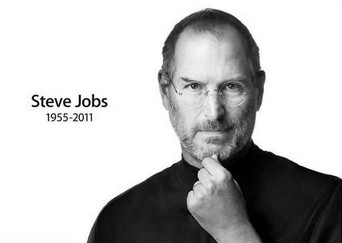He had few friends his own age, but he got to know some seniors who were immersed in the counterculture of the late 1960s. It was a time when the geek and hippie worlds were beginning to show some overlap. “My friends were the really smart kids,” he said. “I was interested in math and science and electronics. They were too, and also into LSD and the whole counterculture trip.”
他没什么同龄的朋友,却认识几个沉浸在20世纪60年代晚期反主流文化浪潮中的高年级学生。那时候,极客和嬉皮士的世界开始显现出一些重叠了。“我的朋友们都很聪明,”他说,“我对数学、科学和电子学感兴趣,他们也是,而且大家都喜欢迷幻药和反主流文化。”
His pranks by then typically involved electronics. At one point he wired his house with speakers. But since speakers can also be used as microphones, he built a control room in his closet, where he could listen in on what was happening in other rooms. One night, when he had his headphones on and was listening in on his parents’ bedroom, his father caught him and angrily demanded that he dismantle the system. He spent many evenings visiting the garage of Larry Lang, the engineer who lived down the street from his old house. Lang eventually gave Jobs the carbon microphone that had fascinated him, and he turned him on to Heathkits, those assemble-it-yourself kits for making ham radios and other electronic gear that were beloved by the soldering set back then. “Heathkits came with all the boards and parts color-coded, but the manual also explained the theory of how it operated,” Jobs recalled. “It made you realize you could build and understand anything. Once you built a couple of radios, you’d see a TV in the catalogue and say, ‘I can build that as well,’ even if you didn’t. I was very lucky, because when I was a kid both my dad and the Heathkits made me believe I could build anything.”

那时候,他的恶作剧一般都会用到电子设备。有一次,他在家中连接了几个扬声器。杨声器也可以用做麦克风,他在自己的衣柜里建了一个控制室,这样就可以偷听其他房间的声音了。有天晚上,他正戴着耳机偷听父母房间的声音,父亲逮到了他,愤怒地要求他拆除整套系统。很多晚上他都会造访他以前的工程师邻居拉里·朗的车库。朗最终把那只令乔布斯魂牵梦萦的碳精麦克风送给了他,还让他迷上了希斯工具盒(Heathkits)一一当时广受欢迎的用来制作无线电设备或其他电子装备,但需要自己组装的工具套装。“希斯工具盒里面有各种各样用不同颜色编号的插件板和零部件,还有解释其使用原理的操作手册。”乔布斯回忆,“它让你意识到你能组装并搞懂任何东西。你做完几个无线电装置后,就会在目录里看到电视机,你会说,这个我也能做,目卩便你并不会真的去做。我很幸运,因为当我还是个孩子的时候,我的父亲,还有希斯工具盒都让我相信,我能做出任何东西。”
Lang also got him into the Hewlett-Packard Explorers Club, a group of fifteen or so students who met in the company cafeteria on Tuesday nights. “They would get an engineer from one of the labs to come and talk about what he was working on,” Jobs recalled. “My dad would drive me there. I was in heaven. HP was a pioneer of light-emitting diodes. So we talked about what to do with them.” Because his father now worked for a laser company, that topic particularly interested him. One night he cornered one of HP’s laser engineers after a talk and got a tour of the holography lab. But the most lasting impression came from seeing the small computers the company was developing. “I saw my first desktop computer there. It was called the 9100A, and it was a glorified calculator but also really the first desktop computer. It was huge, maybe forty pounds, but it was a beauty of a thing. I fell in love with it.”
朗还让乔布斯加入了惠普探索者俱乐部,这是一个每周一次的聚会,每周二晚在公司餐厅进行,有大概15个学生参加。“他们会从实验室里请来一个工程师,给我们讲讲他正在研究的东西,”乔布斯回忆,“我爸爸会开车送我去。我感觉那儿就是我的天堂。惠普当时是发光二极管(LED)行业的先锋,所以我们就会讨论发光二极管的一些问题。”因为当时父亲为一家激光公司工作,所以乔布斯对发光二极管特别感兴趣。有一天晚上,聚会结束之后,他拦住了惠普的一名激光工程师,获得了参观他们全息摄影实验室的机会。但最让他印象深刻的还是见到了当时惠普正在开发的小型计算机。“我在那里第一次见到了台式计算机,它被称为9100A,是一台被神化了的计算器,但也确实是第一台台式计算机。它身形巨大,大概有40磅重,但它真的很美,我爱上了它。”
The kids in the Explorers Club were encouraged to do projects, and Jobs decided to build a frequency counter, which measures the number of pulses per second in an electronic signal. He needed some parts that HP made, so he picked up the phone and called the CEO. “Back then, people didn’t have unlisted numbers. So I looked up Bill Hewlett in Palo Alto and called him at home. And he answered and chatted with me for twenty minutes. He got me the parts, but he also got me a job in the plant where they made frequency counters.” Jobs worked there the summer after his freshman year at Homestead High. “My dad would drive me in the morning and pick me up in the evening.”
探索者俱乐部的孩子们被鼓励做一些项目,乔布斯决定做一台频率计数器,这是用来测量一个电子信号中每秒钟的脉冲数量的。他需要一些惠普制造的零件,所以他拿起电话打给了惠普的CEO:“那个时候,所有的电话号码都是登记在册的,所以我在电话簿上寻找住在帕洛奥图的比尔·休利特,然后打到了他家。他接了电话并和我聊了20分钟,之后他给了我那些零件,也给了我一份工作,就在他们制造频率计数器的工厂。”乔布斯髙中第一年的暑假就在那里工作。“我爸爸早上幵车送我去,晚上再把我接回家。”
His work mainly consisted of “just putting nuts and bolts on things” on an assembly line. There was some resentment among his fellow line workers toward the pushy kid who had talked his way in by calling the CEO. “I remember telling one of the supervisors, ‘I love this stuff, I love this stuff,’ and then I asked him what he liked to do best. And he said, ‘To fuck, to fuck.’” Jobs had an easier time ingratiating himself with the engineers who worked one floor above. “They served doughnuts and coffee every morning at ten. So I’d go upstairs and hang out with them.”
他的工作主要就是在一条流水线上“安装基本元件”。一部分工友对这个爱出风头的孩子有些不满,因为他是通过给CEO打电话才得到了这份工作的。“我记得我告诉一个监督员:‘我喜欢这玩意儿,我喜欢这玩意儿。’然后我问他最喜欢做什么,他回答说:‘我喜欢鬼混,我喜欢鬼混。’”乔布斯与在楼上工作的工程师们相处甚欢。“每天早上10点,他们15儿都会供应甜甜圈和咖啡。我会跑上楼跟他们混在一起。”
Jobs liked to work. He also had a newspaper route—his father would drive him when it was raining—and during his sophomore year spent weekends and the summer as a stock clerk at a cavernous electronics store, Haltek. It was to electronics what his father’s junkyards were to auto parts: a scavenger’s paradise sprawling over an entire city block with new, used, salvaged, and surplus components crammed onto warrens of shelves, dumped unsorted into bins, and piled in an outdoor yard. “Out in the back, near the bay, they had a fenced-in area with things like Polaris submarine interiors that had been ripped and sold for salvage,” he recalled. “All the controls and buttons were right there. The colors were military greens and grays, but they had these switches and bulb covers of amber and red. There were these big old lever switches that, when you flipped them, it was awesome, like you were blowing up Chicago.”
乔布斯喜欢工作。他曾经送过报纸——下雨的时候父亲会开丰送他——在他高中第二年的时候,周末和暑假他都在一家巨大的电子器材商店哈尔泰克(Haltek)做仓库管理员。如同他父亲那个堆满汽车零件的废品站一样,这家到处都是电子设备的商店也是拾荒者的天堂。这家商店延伸了一整个街区,那些新的、旧的、回收的、过剩的部件塞满了架子,未经分类就扔进了箱子,还有的就堆在户外的院子里。“在仓库后面靠近海湾的地方,他们用栅栏围起了一块区域,里面放着北极星潜艇的内部元件,都是从潜艇上扒下来当做废品卖掉的,”他回忆说,“所有的操纵装置和按钮都在。它们都是军绿色或灰色的,但是开关和螺栓盖是琥珀色和红色的。那些开关都是老式的大型的手柄式开关,当你打开开关的时候,那种感觉太棒了,就好像你要炸了芝加哥一样。”
At the wooden counters up front, laden with thick catalogues in tattered binders, people would haggle for switches, resistors, capacitors, and sometimes the latest memory chips. His father used to do that for auto parts, and he succeeded because he knew the value of each better than the clerks. Jobs followed suit. He developed a knowledge of electronic parts that was honed by his love of negotiating and turning a profit. He would go to electronic flea markets, such as the San Jose swap meet, haggle for a used circuit board that contained some valuable chips or components, and then sell those to his manager at Haltek.
在店里堆满了厚厚目录的木制柜台前,人们会为了开关、电阻、电容和最新的存储芯片讨价还价。乔布斯的父亲以前也曾为汽车部件做过这样的事情,因为他比店员还清楚零件的价格,所以每次都能还价成功。乔布斯在这点上学习了父亲。他热衷于谈判并中获得实惠,这也让他对电子零件有了更充分的了解。他会去电子产品的跳蚤市场,比如圣何塞交换大会,为了一块带有值钱芯片的电路板跟人讨价还价,然后把那些芯片卖给哈尔泰克商店的经理。











